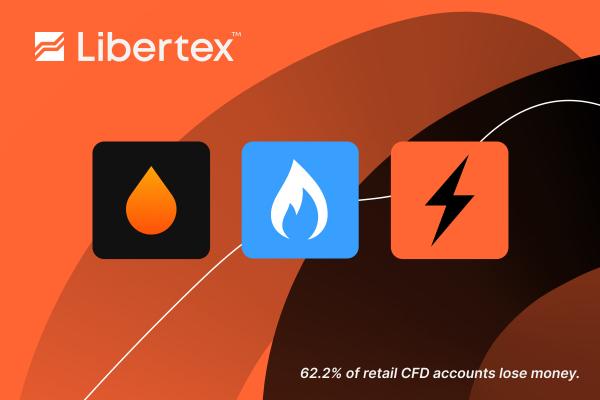In times unmatched since the 1970s, Europe finds itself in the grip of the biggest energy crisis in recent memory. Since early last year, global oil prices have doubled, coal prices have nearly quadrupled, and European natural gas prices have increased almost seven-fold. This is inevitably prompting both businesses and consumers to tighten their belts, the effects of which are being felt in both Manufacturing and Services PMIs across the old continent.
Now, however, a combination of increased supply and lower industrial demand could actually end up pushing prices lower. But isn't that good news? In the short term, perhaps yes, but macroeconomically speaking…not so much. Wherever there's a crisis, though, traders and investors are sure to find an opportunity if they look hard enough. In this article, we'll examine the future trajectory of the energy market and try to identify the best way to play the current situation.
OPEC to the rescue?
For many, the increases in oil prices that have hit the average consumer hardest are viewed as artificially sustained. After all, there is more than enough easily accessible oil in the world. It simply isn't being released onto the market. While simple in its analysis, it is essentially true. OPEC had been under pressure to increase supply for several weeks following Biden's visit to the Kingdom of Saudi Arabia last month. However, not all of the cartel's members are quite as friendly to the Americans as Riyadh. Many of the group's member states are more than happy with higher prices and would prefer the commodity remain scarce. After much deliberation, OPEC finally agreed to a modest 100,000 bpd, which, while far from a panacea, will certainly go some way towards controlling prices into the autumn. Indeed, both Brent and US West Texas Intermediate immediately responded to the news by falling 0.2% to $97.22 and $91.71, respectively. With continued vocal pressure to ramp up production from the world's biggest superpower, we could thus reasonably expect a downtrend to ensue in the coming months.
Subdued demand worrying economists
While rising output has certainly helped to control prices, the cause of falling oil prices is by no means all supply side. Recent data show that US gasoline demand is currently lower than it was two years ago at the height of the pandemic lockdowns, with $120+ per barrel of oil keeping more drivers off the road than COVID-19. Meanwhile, electricity prices, which are directly correlated with gas and coal prices, have been rising exponentially.
Political instability in the East and the lack of viable alternatives have meant that European gas and electricity prices have run riot. Unlike oil, today's consumers are not able to 'opt out' of electricity use and, with the heating season fast approaching, they will similarly be forced to heat their homes regardless of the cost. Despite natural gas's lower susceptibility to demand-side pressure, many businesses are cutting back on power use on account of high prices, and this is leading to accelerated inflation and negative growth in many EU nations. If this trend continues into the autumn and winter, Europe could well be headed for a full-blown recession. In that case, one would expect a protracted downtrend to ensue.
Trade oil and gas CFDs with Libertex
With all of the political and economic instability in the world, nobody truly knows where the energy markets are headed in the short-to-medium term. But with Libertex, at least you'll have the possibility to trade energy CFDs long or short for maximum flexibility and diversification. Libertex offers a range of commodities CFDs from Brent, WTI and Light Sweet crude oil all the way to Henry Hub natural gas – not to mention a wide variety of related stock CFDs, including Exxon Mobil, Total and Gazprom. The choice is yours! Enjoy tight spreads and low commission while trading conveniently in our multi-award-winning app. For more information or to create your own account, visit www.libertex.com
Risk Warning: CFDs are complex instruments and come with a high risk of losing money rapidly due to leverage. 62.2% of retail investor accounts lose money when trading CFDs with this provider. Tight spreads apply. Please check our spreads on the platform. Available for retail clients on the Libertex Trading Platform. You should consider whether you understand how CFDs work and whether you can afford to take the high risk of losing your money.


